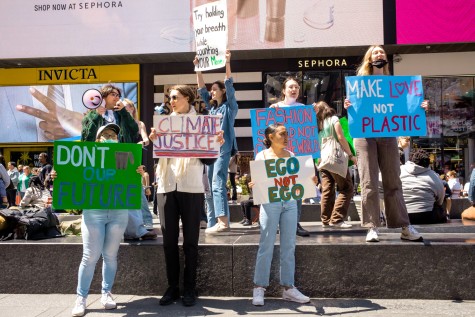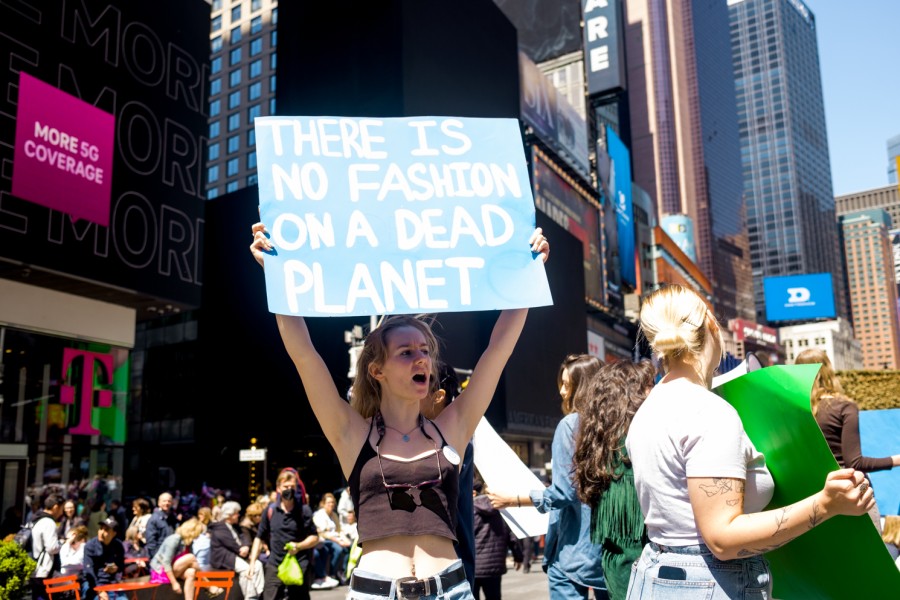FIT students rally for sustainable fabric in Times Square
Eighteen Fashion Institute of Technology students gathered in Times Square on Saturday to advocate against unsustainable textiles and their negative impacts on the environment.
Students at the Fashion Institute of Technology protested in Times Square on April 30 to advocate for sustainable fashion. (Staff Photo by Samson Tu)
May 2, 2022
More than a dozen Fashion Institute of Technology students protested the proliferation of unsustainable fabrics in the fashion industry and their negative impacts on the environment in a Times Square rally on Saturday.
The protest was led by FIT’s chapter of American Association for Textile Chemists and Colorists, a nonprofit organization working to ensure production quality in the textiles industry. The group’s members are advocating for more efficient production waste management procedures, hoping to hold the federal government and corporations accountable for their impact on the environment.
With 46 members, AATCC’s FIT chapter is the largest of the organization’s 25 university chapters. Two of its members — Rebecca Dillenberger and Samantha Galanti — organized Saturday’s protest. Dillenberger said petroleum-based textiles are cheap to produce, but break down into polluting microplastics, making them a major contributor to the textiles industry’s negative impact on the environment.
“We are advocating for a more sustainable textile supply chain without the dependency of petroleum-based fibers that contribute to the degradation of our people and our planet,” Dillenberger said.

The students stood and chanted for over two hours in Times Square between 45th and 46th streets. Some passersby thanked the group for their advocacy, and some joined their chants. Freelance photographer Ryan Persinger stopped and offered to take complimentary professional photos of the group.
“Our planet is dying because my generation and above don’t give a fuck,” Persinger said. “We need to do better.”
Preeti Arya, an FIT professor and the AATCC chapter’s faculty adviser, said that because the institution is a global leader in fashion, innovation, textiles and sustainability, she hopes that Saturday’s protest will encourage others to follow suit in renouncing petroleum based fibers.
“All these big brands have become billionaires just by selling the cheap one-cent polyester,” Arya said. “We are at the brink of a war with nature in a way we are going to lose.”
Both Galanti and Dillenberger do not blame individual consumers for the industry’s impact on the degradation of the planet. However, they said American habits of overconsumption are unnecessary and contribute to climate change. Galanti encourages people to opt for natural fibers like wool or linen or to shop secondhand.
“Especially in American society, we have a very terrible habit of overconsumption,” Galanti said. “There’s no reason that you need a new wardrobe every couple of weeks.”
Contact Emma Grimes at [email protected].

























































































































































